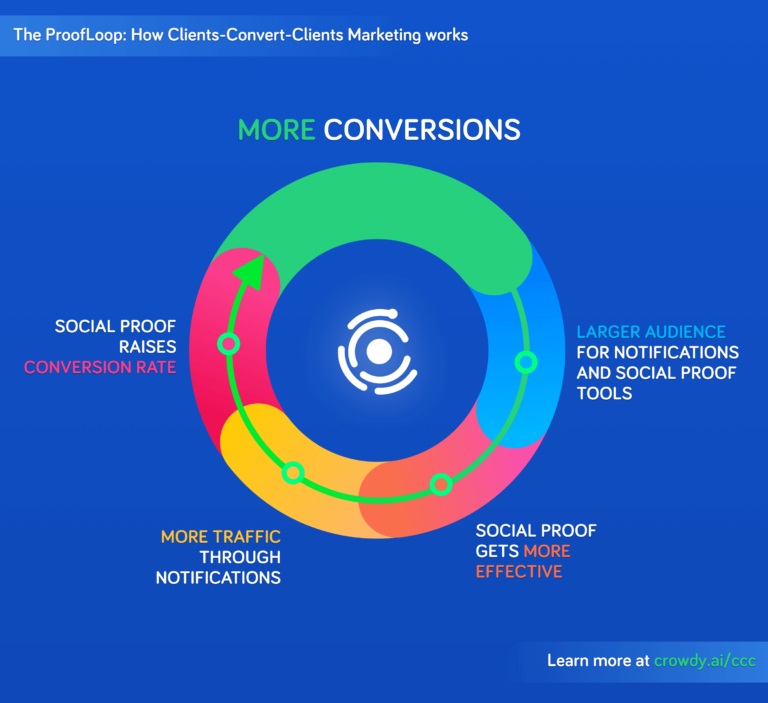What is the Least Expensive, but Most Effective Marketing Strategy for a Small Business?

Between paying employees and other running costs, small businesses often have quite limited budgets for marketing. If you are in the same situation and don’t have much room left in the budget for marketing activities, don’t despair: all is not lost! It’s just the nature of starting a business from the ground up, especially when it comes to a smaller sized business.
At the same time, every marketing activity requires some investment, whether it’s content marketing, pay-per-click advertising or social media. Don’t believe those numerous articles on ‘digital marketing at no cost’ that name video content or organic SEO as low-cost activities. If you haven’t yet experienced it firsthand, rest assured – content production consumes both time and effort (read: money).
Nevertheless, having a tight budget doesn’t mean that you can’t market your small business. There are a few reasonably-priced marketing strategies that may help your company kick it up a notch.
In this article, we’re going to look at two bullet-proof strategies – marketing cooperation and social proof marketing. These tactics bring you traffic at no cost and, at the same time, help boost website conversion. What could be better?
1. Marketing cooperation
A great way to boost your marketing effectiveness is to work alongside other small (or even large) businesses or entrepreneurs on a short- or long-term basis. That’s called marketing cooperation, or affiliate marketing. Long story short, it’s all about promoting your products or services via partners (affiliates) who get a certain percentage as a reward from you. (Read more about affiliate strategy)

Of course, the revenue share may differ in different industries. For instance, it’s around 20 percent in the SaaS world while it’s significantly lower in the e-commerce industry.
Where to get some inspiration and understand the real power of marketing cooperation? Take a look at ecommerce retail giant Amazon. Amazon is probably the biggest player in the market that adopts affiliate marketing.
The benefits of marketing cooperation
Why do super-successful companies like Amazon use this type of marketing cooperation? Mainly because they pay only after conversion takes place without any upfront investments from their side, so it’s a low-risk activity. Translated to a small company, this makes affiliate marketing one of the most ROI-positive ways to market online. What’s more, there are a few more bold benefits your small business may enjoy using affiliate marketing:
- Accurate success tracking
Almost every marketing cooperation campaign offers real-time tracking. This allows you to know exactly how many times the affiliate link has been clicked and how many leads you received from the partner’s website. Everything is trackable, and you can clearly understand the effectiveness of your marketing cooperation campaigns.
- Boosted promotions
If you have a product launch coming up or a special sale, provide that information to your marketing partners so they can spread the news among their audience.
- Performance-based payments
With marketing cooperation activities, you only pay your partners when a conversion or sale occurs. You pay only for what you get.
Adopt marketing cooperation in a few simple steps
Sound interesting? Now let’s cut to the chase and learn the process of marketing cooperation. In a nutshell, marketing cooperation is choosing to work with other businesses that can help market your products and send traffic to your site. The process looks something like this:
- Identify the needs of your small business.
- Conduct research to find potential partners.
- Identify the chosen partner’s business needs.
- Drop a line to the potential partner and explain how you can help each other.
- Make partnership arrangements if you get a positive reply.
Once you’ve defined your small business needs and goals, now you need to find influencers operating within your market. Sometimes other small businesses will seek you out, but the most reliable method is to take the leap and identify potential business partners on your own.
Search for businesses related to your industry (but not direct competitors). In other words, look for companies that sell an accompanying product or service. In doing so, you can get introduced to a whole new audience related to your niche, for free! It goes without saying that a great partner is one who has a good reputation within your business niche.
Marketing cooperation can take many different forms. Boosting each other’s social media shares, co-hosting an event, placing each other’s advertising banners on your websites, and everything in between.
Marketing cooperation activity accounts for 16 percent of all online orders. If you’re not using this low-cost and fruitful way to increase revenue for your small business, you’re leaving cash on the table. Use the help of a few trusted marketing partners and get ready for more closed deals with a strong return on investment.
2. Social proof as a form of marketing
Bringing users to your website isn’t enough. If they just leave, you won’t get much in return. You need to take it to the next step and convert them into leads or even customers.
Why should your website visitors believe that your small (and probably unknown) business can solve their pain points and challenges? Prospective customers need confidence that you deliver real value. A great way to do this is by using social proof as a marketing strategy via some of these methods: reviews, testimonials, star ratings, opt-ins, referral discounts, and other methods that give website visitors an opportunity to connect with your existing customers.
In a nutshell, use your existing success to gain even more revenue with no additional investment.

Social proof plays on our natural human impulses and tendencies. When booking a hotel room online, the words ‘125 people are looking at this now’ spur us to book quickly and not to miss out. When a product has a negative review, we naturally hesitate to purchase it.
The science behind social proof marketing
Multiple case studies revealed that personalized messages are 10-15% percent more impactful than impersonal messages. This statement is also confirmed by the professor of psychology and marketing Robert Cialdini. As Cialdini states, when humans are unsure what to do, they look around for guidance and will tend to take the word of people who are most similar to them.
Other scientists have identified the so-called loss aversion effect. According to this theory, people value avoiding a loss more than accessing an equivalent gain. For instance, you can inject a drop of loss aversion into your marketing strategy by offering a limited-time trial period. This way, you are allowing prospects to potentially feel the loss of not owning your product when the trial is over.
Also, loss aversion in marketing happens when you craft sales copy that emphasizes what your clients will lose if they don’t purchase or upgrade.
Social proof marketing is based on scarcity messaging as well. For example, have you ever seen a statement on an ecommerce site, such as ‘Only five items left at this price!’? Scarcity is a psychological principle claiming that the rarer the product, the more valuable it is. Scarcity marketing can be summed up as FOMO (fear of missing out).
Black Friday sales, with their highly-discounted and attractive offers, are the perfect example of scarcity in action. Because nothing is more frustrating than missing out on a great opportunity. For inspiration, take a look at online clothing stores that are well-known for employing this sense of urgency in their campaigns.
Social proof marketing in action
How to apply these principles to your marketing strategy? The best way to motivate your prospects to take action is to say that other people in the same situation have done so and gotten successful results.
In other words, draw similarities among your prospective clients and existing customers with the help of social proof. According to the social proof concept, users will adopt the actions of a group of people they like or trust. After all, if people you know and trust are satisfied with a certain product, why shouldn’t you be too?
Here are a few social proof tactics you can try out:
- Give your users a voice. Research claims that 91% of users read testimonials and reviews and 84% trust them as much as a personal recommendation. Although testimonials and reviews don’t necessarily result in immediate purchases, they are a great way to give your prospects a little more confidence. The power of authentic testimonials by real people explaining how your product or service helped solve their problem should not be underestimated.
- Spice it up with star ratings. Similar to testimonials, star ratings based on real customer reviews add trust to your product or service. When your visitors see a review with a star rating on your website, it’s a powerful instant incentive for them to take action.
- Use social sharing and follow buttons. Display the number of social followers or post shares you have. It’s hard to be the first person to put a ‘thumbs up’ on a post. When there are 1574 likes, however, adding one yourself makes you part of a bigger crowd.
- Display recent conversions, like opt-ins or sales, to boost social proof and improve your conversion rates. Remember the “752 people ordered this product last week” or “Emmy from New York has just signed up” popups on some websites you might’ve visited? They make you feel like everyone else is there except you. Signing up becomes more irresistible.
- Display the number of current visitors on your website or specific web pages. This simple trick will definitely raise the demand for your products or services as it shows the user just how popular your website is. If your site is new, and you don’t have much traffic yet, display the total number of visitors for a longer period of time (day, week, month).
Now to the key question: how to implement all of these tactics to your website? There is a wide selection of social proof software tools available that you can use to boost your website. And you don’t even have to be a tech guru to make it work.
Wrapping up
The two surefire marketing strategies for small businesses – cooperation marketing and social proof – are designed to bring you more for less: maximum traffic and customers, at minimal spend.
Cooperation marketing helps drive traffic to your website by partnering with other businesses.
Social proof marketing leverages your existing customers via reviews, testimonials, ratings and more, to create awareness and confidence about your brand among potential customers, and to generate more leads and conversions. The best way to automate these activities is to adopt a comprehensive social proof platform.
To sum up, there’s no silver bullet strategy that will skyrocket your small business revenue.
But, by combining the above-mentioned low-cost marketing ideas to your business, you will get close to the ideal growth hacking strategy.













